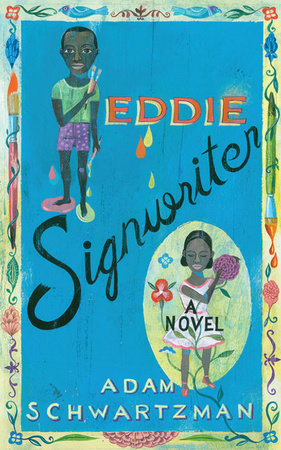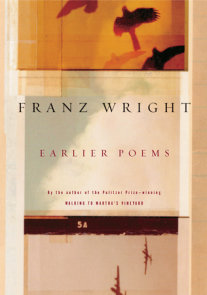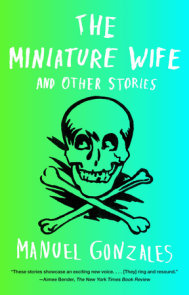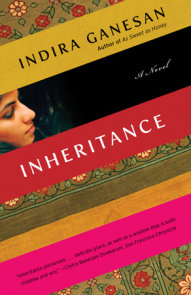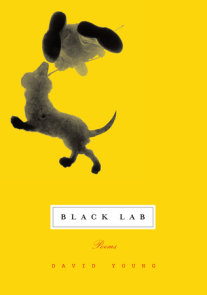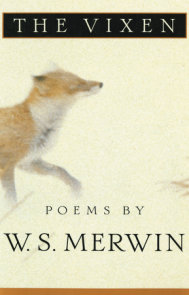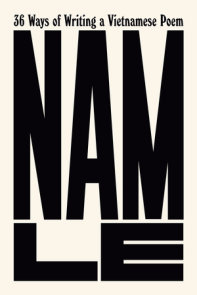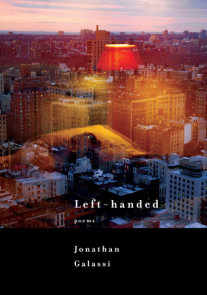READERS GUIDE
The questions, discussion topics, and suggestions for further reading that follow are designed to enhance your group’s discussion of Eddie Signwriter, Adam Shwartzman’s stunning debut novel.Introduction
Kwasi Edward Michael Dankwa—Eddie Signwriter to his clients—is a twenty-year-old painter of murals and billboards in the city of Accra, Ghana, who is buffeted by forces beyond his control and understanding. As a teenager, he struggles with a forbidden relationship and is then banished from school and held responsible for the death of a notable woman in the community.After he is expelled, he learns to turn his confusion into art, becoming a sign painter under the guidance of a compassionate mentor. But then circumstances intercede and he must flee to Senegal and then, illegally, to France, where he determines to make a new life for himself among the immigrant communities of Paris, and to take up his brush once again.
Following him across magnificently rendered African lands into the precincts of Paris, Eddie Signwriter gives us a moving tale of rootlessness and desire, of disgrace and redemption, of politics both personal and global, of art and the saving grace of love.
Questions and Topics for Discussion
1. Adam Schwartzman is a poet. Do you feel his poetry background informs his use of language? Does his style suit the narrative well? Does his work remind you of other writers and, if so, which ones and which books?
2. Eddie’s full name is Kwasi Edward Michael Dankwa. Discuss the importance of his name. Why do you think he chooses certain names at different points in his life: Kwasi, Edward, Eddie? Consider your relationship to your own name. Has it changed throughout your life? What does it mean to be named, by your family, and what does it mean to choose what you are called?
3. Consider the importance placed on culture in the novel. What does Eddie’s father mean when he says he wanted his son to learn to become a Ghanaian? Eddie’s family is often split across countries. How do you imagine this affects their sense of culture? How is culture defined by the group of immigrants in France, since they come from different countries?
4. Why do you think Celeste comes to Eddie? Is the relationship they have based on love, or on something else—both in the beginning and the second time they are together? Do you think it is possible to survive the kind of history their relationship has? What does Eddie mean when he realizes that “The past was gone. Their stories had fled”?
5. Discuss the main characters and their motivations in the novel. In particular: the teacher, Nana, Celeste, Eddie, and Festus Ankrah. What does each want from the world and from each other? Eddie’s experiences are greatly affected by the older people in his life—the teacher, Nana, Big Henry, his uncle. Are these characters good for Eddie, or destructive, or are all their relationships more complicated than good/bad? What influences have you felt in your life from teachers, family members, or friends?
6. It is under Big Henry’s tutelage that Eddie becomes a signwriter. What does he learn from Big Henry? How does his role in Eddie’s life compare/contrast with the role of the teacher? Did you see signwriting as an art before reading this novel? What do you think Eddie is able to accomplish in his work, and is there anything that he cannot put into his paintings?
7. What do you think is at the heart of Eddie’s breakdown in both the middle and at the end of the novel? In one case, he makes the decision to leave Africa; in the other, he is able to return to the community in Paris. What affected both these choices?
8. The journey to find Eddie is long and difficult. Why do you think Festus undertakes this search? And what do you think both men take away from their meeting in the end? What does Festus mean when he says that his purpose is “to let you go”?
9. What is your understanding of the scene in which Eddie sleeps with a prostitute, Janet? Why do you think he makes this choice? What does it say about where he is emotionally in his life?
10. Schwartzman creates a vivid portrait of an immigrant community in France. Discuss these characters and how they each handle their lives and the risks they must take every day.
11. There are many different statements about love in the novel, including these two: “even with the woman you love most in the world . . . you are still alone” and “Love can make amends for anything.” Eddie often finds himself thinking “Love. Emptiness. Emptiness. Love.” What do you think the novel suggests about the possibilities of love? What do you think the characters believe about love? Does Eddie’s view change due to his experiences, or does his perspective remain the same? What is your own belief about the power or failure inherent in loving another person?
12. Along with love, there is the question of choice. What does the teacher say about choice, the idea of destiny and/or free will? What do you think Eddie believes?
13. Who do you believe is to blame for Nana’s death? Why do you think she died? Discuss further the role of blame and forgiveness among the characters. What does the novel say about who can blame and who can forgive? At the end, is it acceptable that Festus forgives his nephew?
14. Consider the character of Bernadette. How is her relationship with Eddie different from Celeste’s? Is it similar in any ways? How does Eddie view each woman and the ideas he holds about what relationships can and should accomplish in the world? What do you think are the possibilities for Bernadette and Eddie’s long-term happiness?
15. Do you find that the male or female characters are stronger in the novel? In which ways? Do men and women seem to have different motives for their actions, or is it dependent completely upon the individual person?
16. This is a novel set in Africa, and Eddie is a black protagonist. Adam Schwartzman is a white man born in Johannesburg who has lived in many places across the world. How do you feel about the relationship of author to his characters? Do you hold any assumptions about authors writing across race, and/or across gender?
17. What stays with you after finishing the novel, which specific scenes or emotional response to the narrative and the characters?
(For a complete list of available reading group guides, and to sign up for the Reading Group Center enewsletter, visit www.readinggroupcenter.com)









